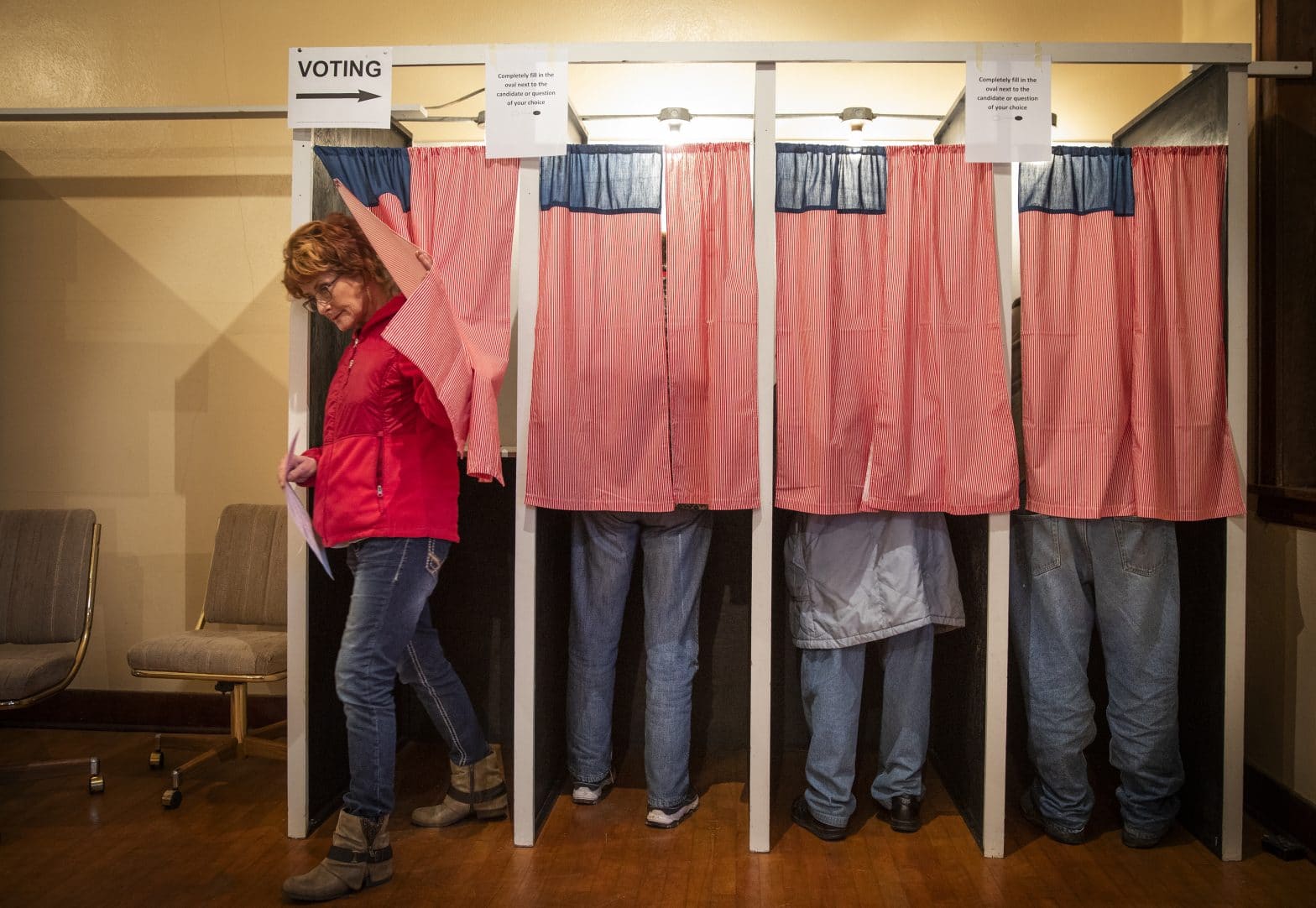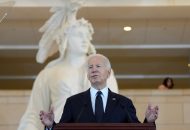Midterms Show Moderates Are Far From Being Politically Extinct

For years, partisans and ideologues have assured us that the political center is dead, so don’t bother making persuasive arguments to swing voters. Just get your base out, and may the most “energized” team win. The 2018 midterm elections, however, showed that the center’s demise has been greatly exaggerated.
The big story was the revolt of suburban voters, led by white, college-educated women, against President Trump’s polarizing populism. Their defection helped Democrats win the popular vote (again), score their biggest gains in the House of Representatives since 1974 and add a slew of new governors.
A national poll by the Progressive Policy Institute (PPI) and Expedition Strategies taken on the eve of the midterm provides further evidence that America’s pragmatic center is resilient and bouncing back after two years of Trump’s bizarre presidency.
It suggests that our democracy’s firewalls against demagoguery and extremism are still intact and that Trump’s 2016 win may be an aberration, a detour rather than a fundamental realignment of U.S. politics.
In fact, our survey illuminates a new political landscape that is favorable to Democrats heading into the 2020 presidential election cycle.
It found that 48 percent of voters identified as Democrats or as independents who lean Democratic, while 39 percent said they were Republicans or lean Republican (the remaining 13 percent were true independents with no allegiance to either party).
Far from being an extinct political species, moderates matter more than ever. Strong partisans of either stripe were a minority in our poll — a potential sign that the nation may have hit “peak polarization” and is now on its way to a more rational equilibrium.
A plurality of our respondents — 44 percent — called themselves “moderate,” versus 24 percent liberal and 32 percent conservative. Independents are overwhelming moderate (62 percent), potentially an exceptionally important as we look ahead to 2020.
To sustain and build on their midterm gains, Democrats should pursue an agenda that is both progressive and pragmatic. In contrast to Trump’s rancorous populism, the new Democratic agenda should be optimistic and aspirational.
It should affirm core American beliefs in free enterprise, individual initiative and self-reliance, and put strengthening markets’ ability to provide broader opportunities before government redistribution.
Our poll finds that 81 percent of voters say that government’s job should be to “help Americans succeed in a time of change” with more opportunities to acquire skills and save for the future, while just 19 percent prefer that government “cushion the impact of economic change” with a plusher safety net.
We also found little evidence that Americans are yearning for a “bold” or “unapologetic” progressivism as defined by the activist left. Its proposals for guaranteed public jobs and guaranteed income found minimal support, even among Democrats.
More fundamentally, the progressive left’s tendency to conflate “boldness” with statist solutions is a snare for Democrats because voters profoundly distrust the federal government.
Here are other key findings from the PPI/Expedition Strategies poll:
Health care lies at the heart of voters’ sense of economic insecurity.
Nearly half of respondents ranked health care as one of their top-three concerns. High costs — especially prescription drug prices — and the fear of losing coverage were voters’ biggest worries.
By substantial margins, they trust Democrats more than Republicans to deliver universal and affordable coverage. Given their anxieties, they seem open to a bigger public role in health care, but at the same time don’t welcome higher taxes.
Companies need to step it up on wages, but treating the business community as the enemy is a mistake.
Despite the unpopularity of some sectors, voters are not generally anti-business. Few voters, for instance, are worried about corporate monopolies, and most take a favorable view of big technology companies. But voters aren’t inclined to give businesses a free pass when it comes to paying their employees decent, middle-class wages.
Nationalism is a failing strategy — perhaps even among Trump’s core supporters.
Voters would like to see American companies succeed globally and don’t support closing our economy to foreign trade or Trump’s tariff wars. More broadly, voters would like to see the United States engaged and leading in the world rather than retreating inward and going it alone.
The federal deficit could be the sleeper issue of 2020.
Americans are growing more concerned about government spending and debt. It ranked as their second-biggest worry, behind drug prices, and fifth on the list of big problems they want Washington to tackle. We also found majority support for repealing the Trump GOP tax cuts and replacing them with payroll tax relief for working families.
Voters are pragmatists on energy and climate change.
A solid majority (58 percent) of respondents view America’s shale oil and gas boom in a positive light because it creates jobs and reduces U.S. reliance on imported oil.
At the same time, they are worried about the environment and support stronger action against climate change. Democrats can win on energy and climate issues — but only if they stop outsourcing their energy policy to green activists and avoid a false choice between fossil fuels and renewable energy.
Don’t forget immigration.
Immigration isn’t a big worry among Democrats, but it’s a top-tier concern for Republicans and a major concern for independents. It’s not enough for progressives to deplore Trump’s nativism and fear-mongering about caravans and “criminal aliens.”
They also need their own plan for strengthening enforcement of U.S. laws and for updating U.S. immigration policy to reflect the labor needs of a high-skill knowledge economy.
Americans prefer a responsive local government to a centralized federal government they deeply distrust.
Voters across the political spectrum see Washington as unresponsive, ineffective and dominated by special interests. However, they show a strikingly high level of confidence in local government.
Rather than centralizing more power in Washington, progressives should “go local” and harness local governments as a creative tool for solving national problems from the ground up.
For progressives, here’s the key takeaway from our national survey: Governing and running in a spirit of “radical pragmatism” is the best bet for delivering the results that Americans crave in ways that ring true to their values.
That’s how mainstream Democratic candidates ousted dozens of GOP incumbents in 2018, and it’s how a pragmatic nominee could send Donald Trump packing in 2020.
—
This op-ed was originally published by The Hill.
—
Will Marshall is president and founder of the Progressive Policy Institute (PPI). Anne Kim is a senior fellow and director of domestic and social policy at PPI.
























